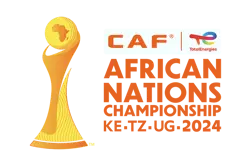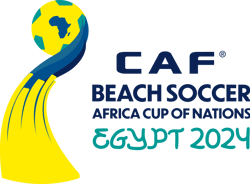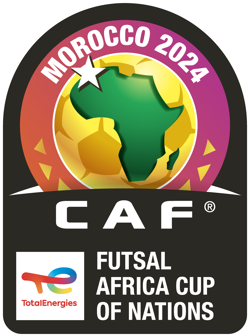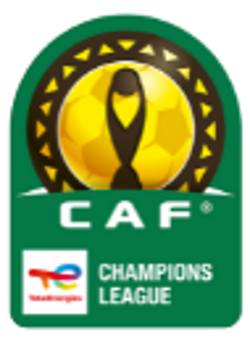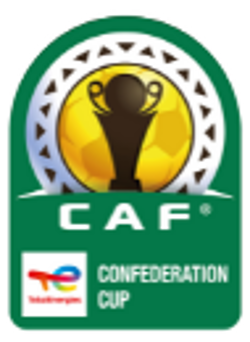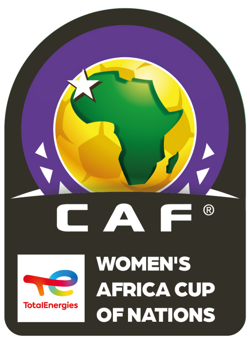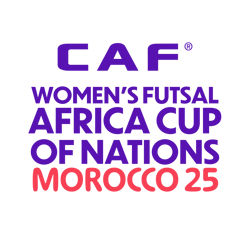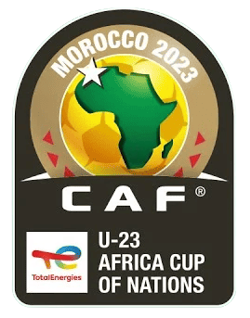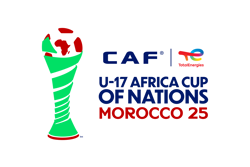Curtis Reid (Tanzania): "When you discover futsal, you wonder why you didn't try it earlier!"
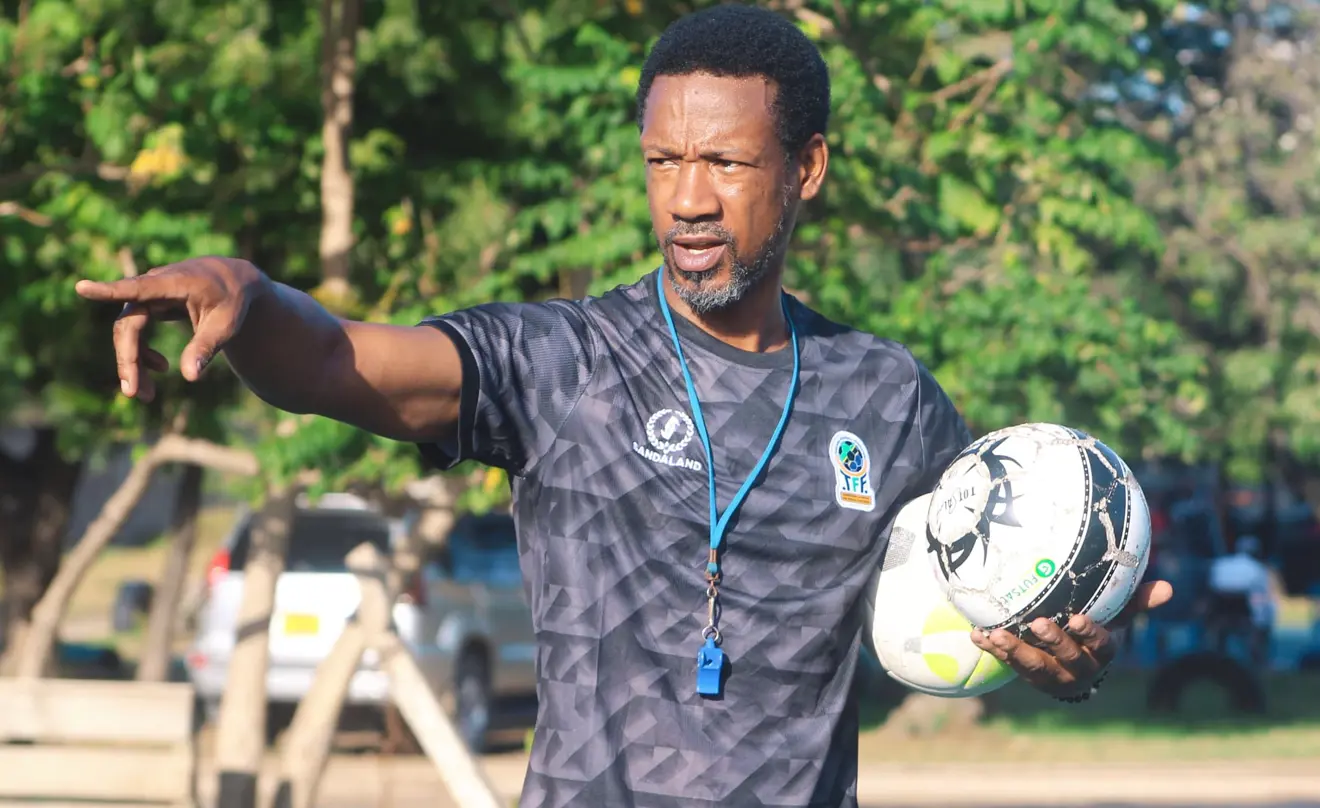
On the eve of the first Women's Futsal Africa Cup of Nations, Tanzania is preparing to make history in African futsal. Under the leadership of Curtis Reid, a seasoned technician with an impressive career, the Tanzanian women's team intends to make an impression and shine on the continental stage.
For Reid, this competition is much more than just participation: it is an opportunity to prove that futsal in Africa can be a powerful vehicle for the development of football.
Curtis Reid, who has several years of experience in futsal, particularly in the United Kingdom, knows the demands of top-level futsal. A former player, he went on to coach several teams and even founded his own futsal academy.
His vision of futsal is clear: a collective game, requiring technique, intelligence of the game and perfect control of the ball, principles that he applies to both the Tanzanian men's and women's teams.
For him, futsal is a condensed and faster version of traditional football, offering players the opportunity to hone their technical skills.
In this exclusive interview with CAFOnline.com, Curtis Reid shares his thoughts on the upcoming competition, the dynamics of his team, and the ambitions behind them. In a Group C composed of Madagascar and Senegal, he remains confident and determined, despite the challenges inherent in this first edition of the tournament.
His team, although relatively new to futsal, has enormous potential, and the goal is clear: to win the trophy and open new doors for women's futsal in Africa.
Cafonline.com: Tanzania is in Group C with Madagascar and Senegal. What are your impressions?
Curtis Reid: We know it's an international level, so we expect to play against the best teams. We anticipate a very difficult group stage, but we are preparing for all possible scenarios.
How is your preparation for this tournament going?
It's going well. It could be better, but you know, futsal is just starting to develop in Africa. So we have some difficulties, but we are overcoming them and hopefully we will do even better next time. We are making progress and moving in the right direction.
Coach, can you describe your team?
The majority of our players come from football, because Futsal is still new here. However, our team is very experienced. Many of our players have already played at international level, which gives us a certain solidity.
What are your ambitions for this Women's Futsal AFCON?
We hope that this competition will help to promote Futsal in Tanzania and develop this discipline. We want to make more people aware of this style of play and the benefits it can bring, not only for Futsal, but also for football in general.
How did you get into the world of Futsal?
I've been playing futsal for about 10-15 years. I played professionally in the UK and then started coaching. I coached several teams. I ran my own academy and we had our own team in the professional league in the UK. For me, it was natural to switch from football to futsal. When I understood that futsal was very beneficial for those who play football, and now that futsal is coming to Africa, it was a great opportunity for me to coach here in Africa and help advance football in Africa. When you play futsal for the first time, you wonder why you didn't discover it sooner! It's an exciting game for both players and spectators. So the transition from football to futsal was easy for me.
You recently described futsal as a "tiki-taka" game system. What do you mean by that?
Futsal is the origin of the "tiki-taka" style of play. Coaches like Pep Guardiola grew up with futsal. Players like Ronaldinho, Ronaldo, Messi, Neymar... If you look at the biggest stars in world football, I guarantee that they have all played Futsal at some point in their careers. The tiki-taka style comes directly from this discipline: fast-paced, movement-based play with and without the ball, and many precise passes to achieve the final goal.
How is futsal perceived in Tanzania?
For the moment, it is not yet very well recognized here. However, thanks to the participation of the men's team in the AFCON last year, more and more people are becoming aware of this. There are clubs where the leaders understand the importance of futsal and integrate it into their training programs. We see an improvement, and now that the women's team is also participating in the AFCON qualifiers, it will contribute even more to its recognition.
As a coach, you have a unique role, because you are also the coach of the men's team. Do you apply the same training methods for men and women?
Yes, we try to keep the same philosophy of play and the same training principles for both teams. I even integrated a former player of the men's team into my technical staff, who was the captain. He assists me in coaching the women's team and will be able to share his experience with the players.
On a personal level, is participating in this first Women's Futsal AFCON a kind of redemption after narrowly missing out on qualifying for the Men's AFCON?
Yes, it's a great opportunity. If we have a good tournament, we have a chance to go to the World Cup. For the men's team, the preparation had not been optimal, and we learned a lot from this experience. At the time, futsal was still new to the Tanzania Football Association (TFF). Although we already have small-format games in Tanzania, Futsal as a discipline was still unknown. The fact that we narrowly failed can be attributed to our lack of preparation. This time, we had more time to organize ourselves and better preparation for the women's team.
This WAFCON paves the way for the Futsal Women's World Cup later this year. What does this opportunity mean to you?
It's a huge opportunity. Personally, I see this as a way to increase the visibility of Futsal in Tanzania and Africa. My heritage is Jamaican, and growing up, I always wanted to come to Africa to make a difference. I had the chance to become a national coach and share my experience abroad. For me, Africa is my home, and Tanzania is my home. Helping this team qualify would be a huge source of pride, not only for Tanzania, but also for all Africans, whether they are on the continent or in the diaspora. It would show that we are capable of competing with the best teams.
Beyond the historic participation of your team in this Women's Futsal AFCON, what is your wish for the development of futsal on the continent?
My wish is that Futsal will be practiced in every region of every African country. That young people have access to this sport, which is an excellent basis for football. Many of the best players in the world have gone through futsal before reaching the elite. I would like this discipline to be better recognized in Africa. And if the CAF President continues to support futsal, I think this dream can come true.

